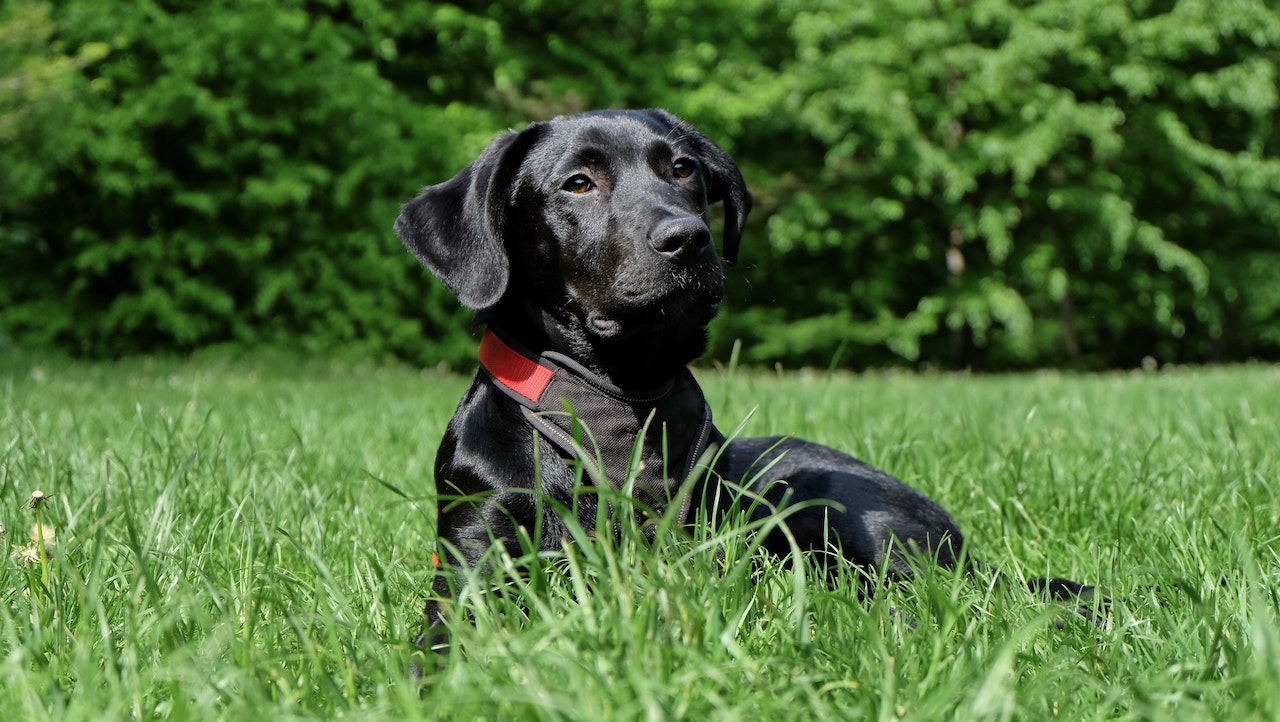How to Calm a Reactive Dog
If you’re struggling with a reactive Labrador and want to prevent them from becoming reactive, I’ve got some helpful tips for you. Calming a reactive dog requires patience, consistency, and understanding of their triggers. By implementing the right strategies, you can help your Labrador become more relaxed and less prone to reacting.
One effective approach is desensitisation and counter-conditioning. This involves gradually exposing your dog to the stimuli that trigger their reactivity while providing positive reinforcement for calm behaviour. For example, if your Labrador becomes reactive around other dogs, start by keeping a safe distance and reward them for remaining calm. Gradually decrease the distance over time as they become more comfortable.
Another important aspect is creating a structured environment for your Labrador. Establishing routines for exercise, feeding, and relaxation can help reduce their overall stress levels. Regular physical exercise is particularly beneficial in releasing pent-up energy and promoting mental well-being.
Additionally, consider seeking professional help from a certified dog trainer or behaviourist who specialises in working with reactive dogs. They can provide personalised guidance tailored to your Labrador’s specific needs.
By implementing these strategies consistently and providing an environment that promotes relaxation, you can make significant progress in calming your reactive Labrador and preventing further reactivity issues from arising. Remember to be patient with your furry friend as it may take time for them to learn new behaviours and overcome their triggers.
Understanding Reactivity in Dogs
Reactivity in dogs can be a challenging behaviour to deal with, but with the right knowledge and approach, it is possible to calm a reactive dog and prevent your Labrador from becoming reactive. In this section, I’ll explain what reactivity in dogs is all about.
- What is Reactivity? Reactivity refers to an exaggerated response that dogs display when faced with certain triggers or stimuli. These triggers can vary from other animals or people to loud noises or unfamiliar environments. Reactive behaviour may include barking, lunging, growling, or even aggressive actions.
- Causes of Reactivity: There isn’t a single cause for reactivity in dogs; it can stem from various factors such as genetics, lack of socialisation during puppyhood, past traumatic experiences, fear or anxiety issues, or even frustration due to inadequate mental and physical stimulation.
- Identifying Reactive Behaviour: It’s essential for dog owners to recognize the signs of reactivity early on. Keep an eye out for behaviours like excessive barking at specific stimuli, pulling on the leash aggressively towards other animals or people, raised hackles (hair standing up), tense body posture, or dilated pupils.
- The Importance of Prevention: Taking proactive measures to prevent reactivity in your Labrador is key. Start socialising your pup from a young age by exposing them gradually and positively to different environments, sounds, people, and animals. Positive reinforcement training methods can help build confidence and teach appropriate behaviours.
- Managing Reactive Situations: If your Labrador already displays reactive behaviour, it’s crucial to manage their environment carefully. Avoid exposing them unnecessarily to triggers that set off their reactive response while you work on behavioural modification techniques with the guidance of a professional dog trainer.
- Seeking Professional Help: Dealing with canine reactivity can be complex and requires expert guidance at times. Consider seeking the assistance of a certified dog behaviourist or trainer experienced in working with reactive dogs. They can help create a personalised training plan and provide valuable insights into your Labrador’s specific needs.
Remember, calming a reactive dog and preventing reactivity in Labradors requires patience, consistency, and understanding. By addressing the root causes, providing appropriate socialisation, and seeking professional guidance when needed, you’ll be on your way to helping your Labrador become a well-balanced and calmer companion.
